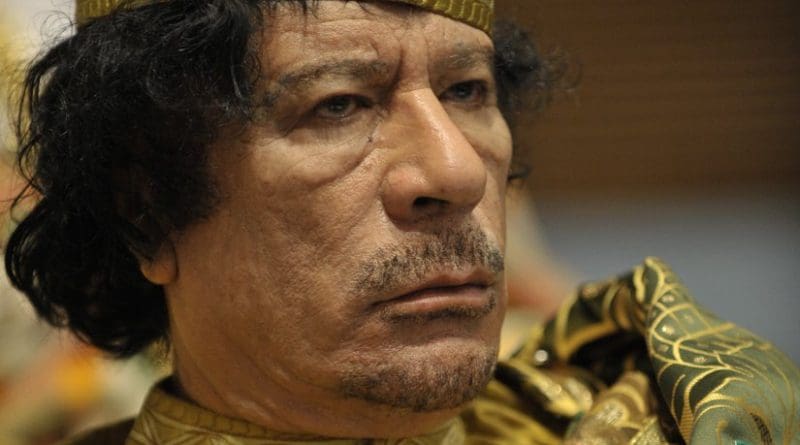Libya: Coalition Carries Out Second Night Of Strikes On Qaddafi Defenses
By RFE RL
(RFE/RL) — A multinational coalition has carried out a second night of strikes on targets in Libya aimed at establishing a no-fly zone and preventing Muammar Qaddafi’s forces from launching assaults on opposition supporters seeking the end of Qaddafi’s rule.
The United States — which has been carrying out the air strikes in a coalition with Britain, France, Italy, Canada, and other nations — said the air campaign has been working and a no-fly zone is now effectively in place over the North African country.
The United States also rejected a cease-fire declared by Qaddafi’s regime, saying the alleged cease-fire was violated by Qaddafi’s troops immediately after it was announced.
Explosions rocked the Libyan capital Tripoli on the night of March 20, and Qaddafi regime officials said a building in Qaddafi’s personal compound was hit and severely damaged by an apparent missile strike. Qaddafi’s whereabouts at the time of the reported strike were not known.
U.S. Navy Vice Admiral William Gortney, the staff director for the Joint Chiefs Of Staff, denied the coalition had targeted Qaddafi. He said allied forces were focused only on fulfilling last week’s United Nations Security Council resolution calling for the establishment of a no-fly zone and the protection of the Libyan people.
‘In A Matter Of Days’
Meantime, U.S. officials are stressing the limits of American military involvement in the Libyan conflict.
Defense Secretary Robert Gates, speaking on March 20 as he traveled to Russia, said the United States would not keep a “preeminent role” in the coalition maintaining the no-fly zone over Libya. Gates said the U.S. military is expected to hand over “primary responsibility” for the air mission to France, Britain, or NATO “in a matter days.”
In addition to attacking air-defense sites, British, French, and U.S. planes were reported to have hit tanks and other vehicles of Qaddafi’s army south of the rebel-held bastion of Benghazi in eastern Libya.
In the aftermath of the air attacks, concerns over the strength of diplomatic support for the multinational intervention have been raised, including criticism of the strikes by the head of the Arab League group of nations.
Arab League chief Amr Mussa of Egypt was quoted as saying the strikes that began on March 19 had gone beyond what the Arab League supported. He said the Arab League wanted protection of Libyan civilians, not bombardment of civilians, and was opposed to some military operations.
U.S.-led Western forces have denied any bombing of civilian targets during the Libyan campaign.
The Arab League had earlier offered its support for imposing a no-fly zone over Libya.
In a sign of potential Arab support, France said warplanes from Qatar were expected to participate in the Libyan campaign.

